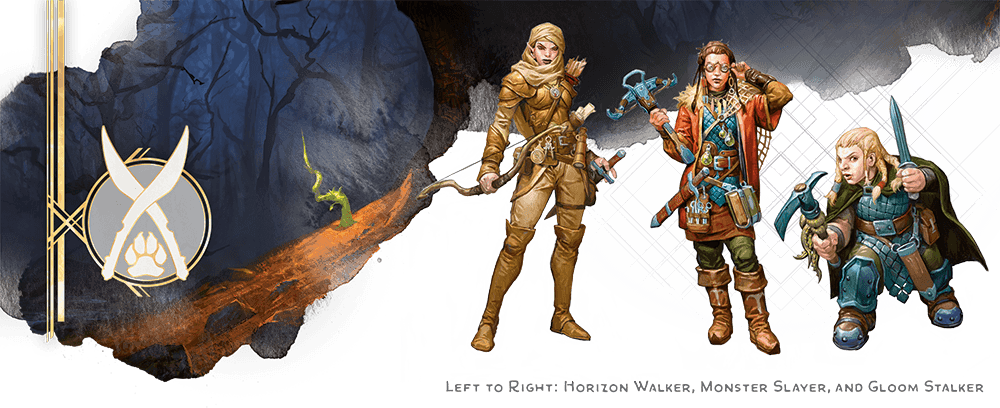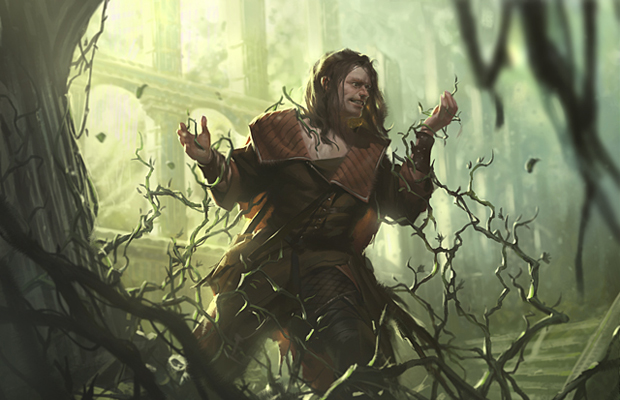
D&D Quest Starters by Character Class — Rangers and Rogues
Looks like people are enjoying this D&D Quest Starters series so far and we are now more than half way through. The thought behind these ideas is to give simple little scenes for roleplaying, skill challenges or both, for fifth edition Dungeons & Dragons characters based on their character class. These could take five minutes and can be great to give a player whose character does not normally step a chance to shine, or at least encourage them to roleplay their character. The advice here is designed to be generic but these ideas can hopefully inspire you to encourage your players. If a player latches onto the NPC you provide, then feel free to build on that scene over time to have it mean more and the character might keep coming back to the NPC or vice versa. That is why it is a quest starter — it can easily lead to some fun long term quests over time. Use the navigation bar at the top under the title to check out quest starters for other classes like barbarian and bard, and cleric and druid, and fighter and monk.

D&D quest starters — rangers
Rangers are your wilderness warriors. They are typically a good mix of a physical character needing either a good Strength and/or Dexterity and a good Intelligence and/or Wisdom depending on how you are looking to play the character. Intelligence helps with your knowledge skills — History, Nature and Religion, and Investigation while Wisdom helps with Animal Handling, Perception and Survival. Rangers are well-rounded people, but usually not people-persons.
- Settle the dispute. Being as well rounded and traveled as rangers typically are perhaps the character is approached to help settle a dispute based on some kind of plant or a detail in a map. Given rangers’ skill sets it should be easy for them to identify the thing. I would not even require a roll, and allow the player to get settled in for the amount of roleplaying that they are comfortable with.
- Give Guidance. Someone is leaving the village or city for the first time and does not want to be without something that is crucial to survive in the wilderness. They are desperately seeking help in their excursion.
- Crack the Case. A shop owner has something that is chewing on their supplies but does not know what. The ranger is approached with the knowledge that the town guards have not been helpful. Identifying the creature will go a long way to help in capturing it. Maybe the ranger can let the shopkeep know what it is based on tracks, claw or tooth marks or maybe even behavior.
- Apprentice. I explained this in the other posts but I will continue to do so here. An aspiring ranger seeks guidance in understanding and learning what it takes to be a ranger. This can be a new companion in the party or a downtime activity. The decision is up to the two of you and how it is handled and roleplayed in game.
D&D quest starters — rogues

A rogue as seen in the fifth edition Dungeons & Dragons Basic Rules. [Image courtesy Wizards of the Coast]
- Cant. As the rogue is walking down the street the manner in which two individuals are communicating gets recognized easily as Thieves Cant. Will the rogue approach and get in on what ever is going on or will they just keep on walking? Is this an opportunity to insert a side quest, like preventing a robbery? Who knows, it is all up to you.
- The Guild. Larger towns and cities typically have a thieves guild and where the party is now is no different. Maybe from the way they walk or talk, your rogue has given themselves away as one with the right skills. They are approached by a member of the guild. This could be an invitation to join a warning that this town is theirs and not to practice here. Lots of things can be done but it is all up to you where you want this story to go.
- The Set Up. This one can be tricky depending on how you want to play it. It easily leads to bigger things, again depending on which option you use. Whether it is a member of a guild or just a local cutpurse the rogue is approached with a potential job offer, but they need to show they have what it takes. Enter a simple skill challenge and see if they have what the NPC needs. Use the skills that are fitting for rogues — Stealth, Sleight of Hand and thieves’ tools. The other side of the set up is the tricky one. This is where a conversation happens with the rogue in hopes of planting evidence so the rogue is accused of a crime. But this is leads to a much bigger scene than a five minute roleplaying venture.
- Apprentice. Yup. This is on all the lists. See details above.
There you have it, another two classes down and four more to go. Look for parts 5 and 6 coming later, stay tuned.
Thanks for reading. Until next time, stay nerdy!









No Comments